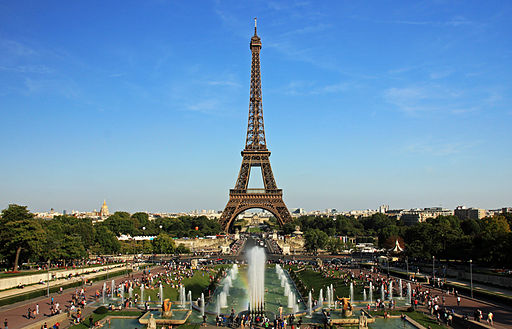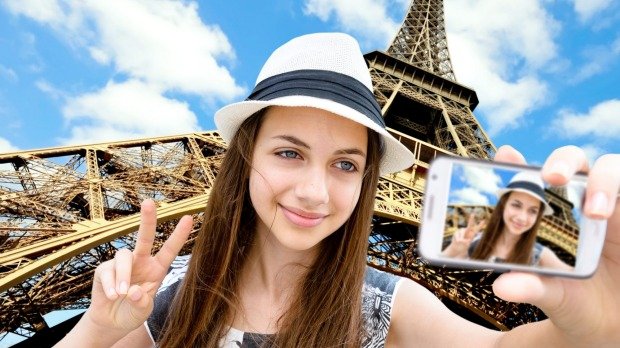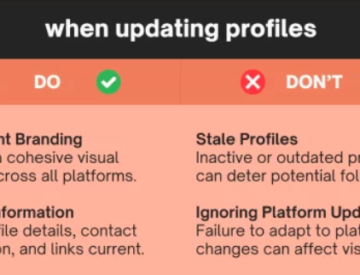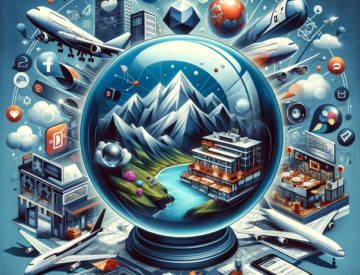Ever since social networks have gained popularity in recent years, we hear of similar questions, with numerous studies and surveys giving arguments for people standing on both side of the matter.
Truth is, social media impacts our every day relationships, how we interact with long-lost friends or mates from college, colleagues at work and even new relationships borne out of Facebook, Snapchat, Twitter or Instagram where we share thoughts, pictures and video moments of our everyday life.
AAAH, THE GOOD OL’ DAYS…
It’s no surprise, then, that social media should also affect how we travel and experience hospitality, at home or abroad.
In fact, I would echo some of the thoughts shared in this brilliant piece recently published in the Globe & Mail, How social media has ruined backpacking through Europe. Having traveled around the world back in the early 90s with my own backpack, I can certainly relate to the author’s fond memories of discussions with fellow travelers, sharing practical tips over a local beverage or two!
For the past year, I have been sitting on the board of Quebec City’s international youth hostel, part of Hostelling International, and I can attest that backpackers I see in common areas indeed do seem to interact a lot less with each other, preferring to sit back behind the comfort of a laptop, tablet or smartphone and chat away with girlfriends or family at home.
Yet, I would be cautious to jump to conclusions and generalize this behavior to all travelers alike. And even if some folks do indulge with lots of social network while away on vacation, does this need to be a bad thing? Not necessarily.
HOW SOCIAL MEDIA IMPACTS TRAVEL
Here are five of my personal pros and cons about social media within the travel experience:
1. Sharing in real time
Once upon a time, you’d insert a film roll into your camera, or better yet have a disposable one, and you’d take pictures during your trip. A couple of days or weeks (or months) later, you’d have them developed at your corner store, you’d put it all into a scrapbook with perhaps a few written comments here and there, so you could show it off to friends and relatives on special occasions.
Nowadays, people just take out their smartphone, take numerous pictures and keep the best ones, add a filter and some comments, then share instantly via Instagram, Facebook, Twitter or perhaps Pinterest.
Beyond images, travelers can now share experiences in real time, too. You could be at the top of the Eiffel Tower and Skype your friends or have some FaceTime or a Google Hangout with them. Barriers have all but vanished with new technologies, allowing to be in contact with almost anyone, anywhere.
That can be a pro or a con, depending on your perspective! I prefer to see the glass as half full, personally, so I’d say this is positive, assuming it doesn’t override the overall trip with constant need to “share online, right now, with all my friends back home”.
2. You are never alone… unless you want to!
To segue from the previous point, social media proves to be good company when you travel by yourself, whether by choice or by circumstances. With various blogger groups, user-generated sites and travel forums, there are more ways than ever to connect with fellow travelers and get to meet people.
Before social media, you’d just show up in the common area, kitchen or bar of the Youth Hostel and hope to start a conversation with other interesting travelers. That was, and certainly remains, lots of fun. Social media is just a different way to reach that same goal.
And if you want to do your own thing and be left alone, the challenge will be in finding the will to disconnect from the mobile devices and social networks long enough to bask into the local culture, wherever you may be.
3. Quantity and quality of information available
I recall not so long ago when travelers would roam the planet with the latest “Let’s Go” edition or Lonely Planet in their pocket, yet the content in there would be at least 6 months old, at best. Nowadays, between travel blogs, user reviews sites like Tripadvisor and Yelp, or niche forums, i.e. backpackers, solo travelers, etc. there is plenty to choose from in order to get fresh, updated information.
Destinations have also embraced social networks, so one can find quality blogs, Pinterest boards, Instagram ideas or Vine videos that give glimpses into what the experience can be, like a movie trailer or teaser to entice travelers to come and visit.
4. It’s tough to let go! (or #FOMO)
This is perhaps the biggest drawback from social media when traveling: the fear of missing out (FOMO) on everything happening back home. Living in the digital age means we can have access 24/7 to all information from pretty much around the world. But just because we can, doesn’t mean we should, as they say!
This is certainly an aspect that seems harder to grasp for my generation, when seeing younger folks traveling, needing to skype home every evening to catch up on what’s going on in the routine, everyday life.
I feel like saying: “You’re in Barcelona, for crying out loud. Just go out and enjoy it, instead of spending two hours on your computer with your best friend talking about the latest episode of Breaking Bad !”
5. It’s now possible to interact with brands and fellow travelers
Last but not least, it’s hard to imagine life without what is still a very nascent phenomenon: with social media, we can interact easily, instantly, with brands and other travelers. Customer service now takes place on Twitter (think of most airlines or major hotel chains), on Foursquare or Facebook.
And with collaborative platforms, we can now choose to deal directly with vacation rental owners, experience a home-cooked meal or park in someone’s backyard through one of the various peer-to-peer networks that seem to be popping up. Read: Collaborative Economy in Travel: The Big Disruptor
I sometimes wonder how my 8-months long trip around the world, more than 20 years ago, would be with all this technology available today. At the end of the day, I can only say it would have been very different. Not better, not worse. Just different.
So, to get back to the question raised in the Globe article and in the title of this post: does social media enhance or ruin the travel experience? Without a doubt, I would say it has the potential to enhance it. If used moderately, and intelligently.
For travel marketing managers, this long lasting behavior is unavoidable, but more, a bid opportunity to stay in contact with backpackers.










Leave a Reply